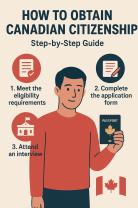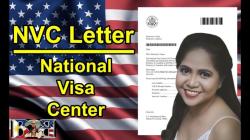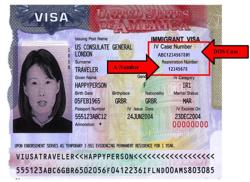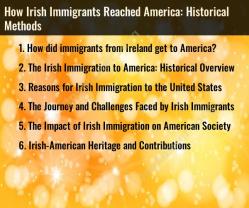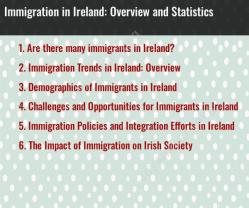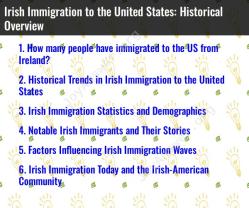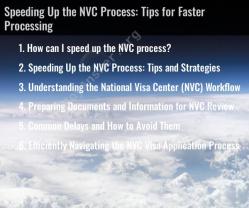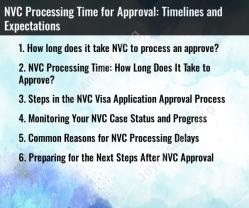What is a good Express Entry Score?
A good Express Entry score is one that increases your chances of being invited to apply for permanent residence in Canada through the Express Entry system. Express Entry is a points-based immigration system, and your Comprehensive Ranking System (CRS) score determines your ranking in the pool of candidates. A higher CRS score increases your chances of receiving an Invitation to Apply (ITA) for Canadian permanent residence.
While there is no fixed score that guarantees an ITA because the minimum CRS score required varies with each Express Entry draw, a strong score typically falls in the range of 450 to 500 or higher. The minimum CRS score for each draw depends on the number of invitations issued, the types of candidates being targeted, and other factors, and it can fluctuate from draw to draw.
To achieve a strong Express Entry score, consider the following strategies:
Improve Your Language Proficiency: The ability to score well in language tests, such as the IELTS for English and the TEF for French, is a crucial factor. Improving your language skills can significantly boost your CRS score.
Gain More Work Experience: Express Entry awards points for work experience in Canada and abroad. The more skilled work experience you have, the higher your CRS score.
Educational Credentials: Completing additional education or obtaining a higher level of education can increase your CRS score.
Obtain a Job Offer: A valid job offer from a Canadian employer can add significant points to your CRS score.
Provincial Nomination: If you receive a provincial nomination through a Provincial Nominee Program (PNP), you'll receive 600 additional CRS points, essentially guaranteeing you an ITA.
Siblings in Canada: If you have a sibling living in Canada as a citizen or permanent resident, it can add extra CRS points to your profile.
Improve Your Spouse's Profile: If you have a spouse or common-law partner, you can maximize your CRS score by ensuring they have strong language skills, education, and work experience.
Age: Being in the prime working age of 20-29 can maximize your CRS score, but you can still earn points for age up until the age of 45.
Adaptive Factors: Certain factors, such as previous study or work experience in Canada, can also contribute to your CRS score.
Express Entry Draws: Stay informed about Express Entry draws and consider optimizing your profile based on the characteristics of candidates that are being invited in recent draws.
It's essential to remember that the Express Entry system is highly competitive, and the ideal score may vary depending on the pool of candidates and the specific draws conducted by the Canadian government. It's a good idea to continuously monitor your CRS score and work on improving it based on your individual circumstances and long-term immigration goals. Consulting with an immigration professional or lawyer can also be beneficial in understanding the Express Entry system and making the most of your profile.
Achieving a Good Express Entry Score: Strategies and Tips
There are a number of strategies and tips that you can use to achieve a good Express Entry score. These include:
- Maximizing your language proficiency: Language proficiency is a major factor in the Comprehensive Ranking System (CRS), which is used to score Express Entry candidates. You can improve your language proficiency by taking language classes, practicing conversation, and watching movies and TV shows in English or French.
- Pursuing higher education: Higher education is also a major factor in the CRS. If you have a master's degree or PhD, you will receive additional points. You can also earn points for completing a Canadian college diploma or post-secondary certificate.
- Gaining work experience: Work experience is another important factor in the CRS. You can earn points for working in a skilled occupation in Canada or overseas. You can also earn points for working in a semi-skilled occupation in Canada.
- Getting a job offer: Receiving a job offer from a Canadian employer is the best way to increase your CRS score. A job offer can give you an additional 600 points, which is almost enough to guarantee an invitation to apply (ITA).
The Importance of a High CRS Score in Express Entry
A high CRS score is important in Express Entry because it increases your chances of receiving an ITA. The higher your CRS score, the more likely you are to be invited to apply for Canadian immigration.
The number of ITAs issued each round is based on the number of applications that the Canadian government has received and the CRS scores of those applications. In general, the higher your CRS score, the sooner you will receive an ITA.
Enhancing Your Express Entry Profile for Canadian Immigration
There are a number of things that you can do to enhance your Express Entry profile for Canadian immigration. These include:
- Creating a strong personal statement: Your personal statement is an opportunity to tell your story and explain why you want to immigrate to Canada. Be sure to highlight your skills, experience, and what you can contribute to Canada.
- Getting letters of reference: Letters of reference from employers, colleagues, or educators can help to support your application and show that you are a qualified and capable candidate.
- Taking the International English Language Testing System (IELTS) or Test d'Évaluation de Français (TEF): The IELTS and TEF are the two language tests that are accepted for Express Entry. You can improve your CRS score by taking one of these tests and achieving a high score.
- Getting a provincial nomination: A provincial nomination is a letter of support from a Canadian province or territory. If you are nominated by a province or territory, you will receive an additional 600 points to your CRS score.
The Role of Language Proficiency and Education in CRS
Language proficiency and education are two of the most important factors in the CRS. Language proficiency is important because it allows you to communicate effectively in Canada. Education is important because it shows that you have the skills and knowledge that are necessary to be successful in Canada.
You can earn CRS points for your language proficiency in English and/or French. The higher your language proficiency score, the more points you will receive. You can also earn CRS points for your education level. The higher your education level, the more points you will receive.
Success Stories and Experiences of Express Entry Applicants
There are many success stories of Express Entry applicants who have immigrated to Canada. Here are a few examples:
- Sarah: Sarah is a software engineer from India who immigrated to Canada through Express Entry. She received an ITA after only six months in the pool and was able to land a job in her field before she even arrived in Canada.
- David: David is a teacher from the United Kingdom who immigrated to Canada through Express Entry. He received an ITA after only three months in the pool and was able to find a teaching job in Canada before he arrived.
- Maria: Maria is a nurse from the Philippines who immigrated to Canada through Express Entry. She received an ITA after only two months in the pool and was able to find a nursing job in Canada before she arrived.
These are just a few examples of the many success stories of Express Entry applicants. If you are interested in immigrating to Canada, Express Entry is a great way to do it. By following the strategies and tips above, you can increase your chances of receiving an ITA and immigrating to Canada to build a new life for yourself and your family.


